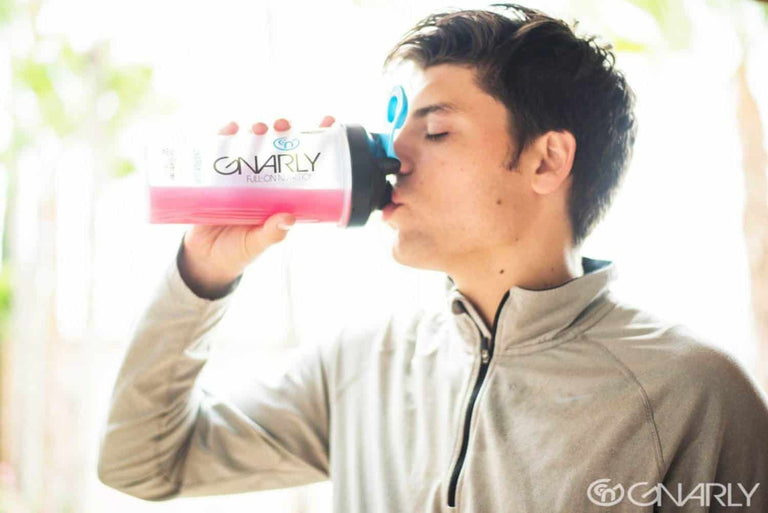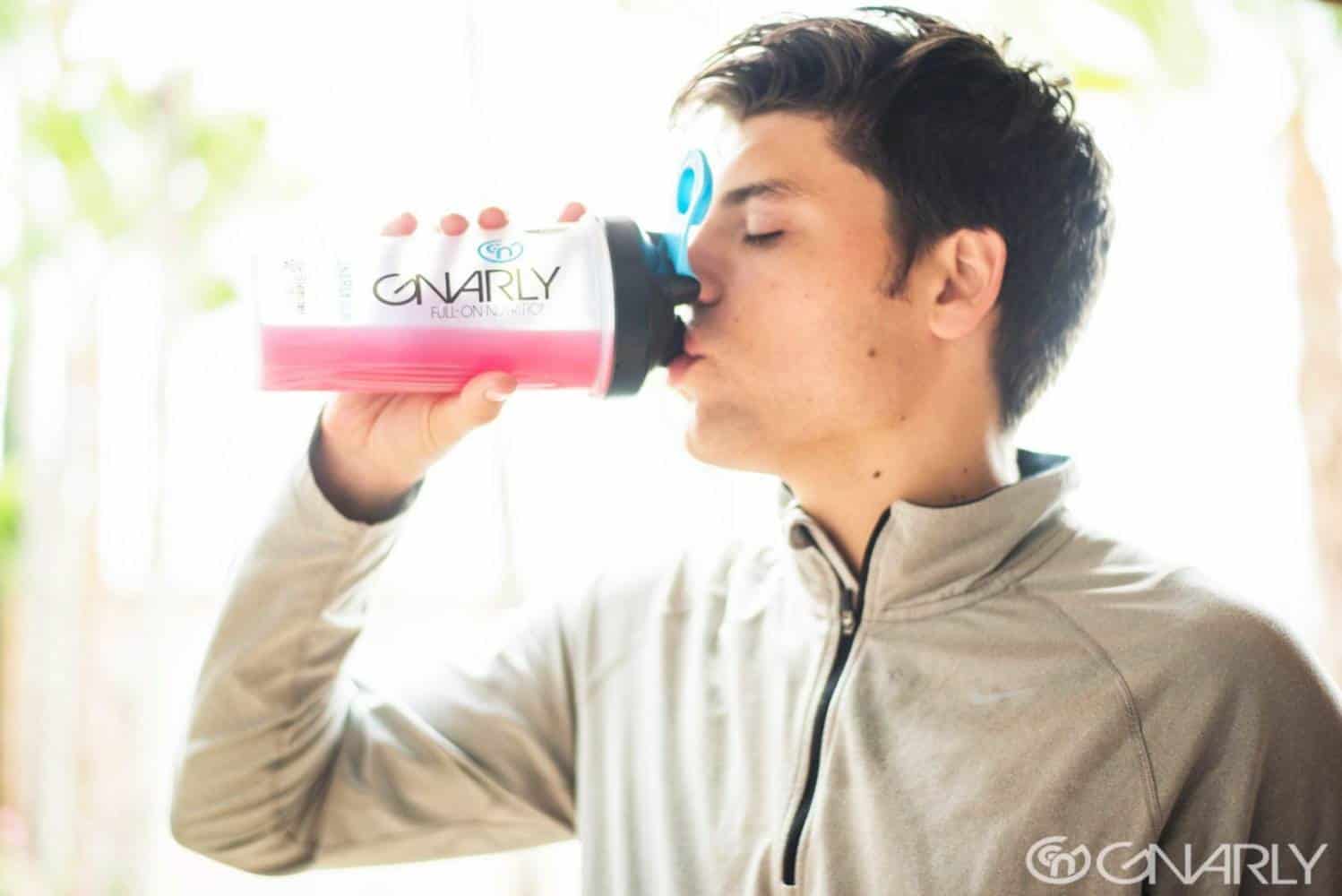If you’re an athletic person, you’re probably at least vaguely aware of “sports nutrition”—a discrete branch of nutritional science that focuses on increasing performance. You might also be aware that pro athletes often hire sports nutritionists to help them get the most out of their diets, and that major league teams usually have a sports nutritionist on staff for the same reason.
But if you’re like most non-professionals, you’ve likely also dismissed sports nutrition as a minor concern. You may think it’s something a pro (who’s looking for every edge they can get) needs, and believe you already have 95% of it covered with a normal, healthy diet.
Truly, sports nutrition can seem rather oblique to your goals (especially if you already eat well) so it’s easy to ignore, but to do so is a mistake! In reality, it doesn’t matter what level of athlete you are—sports nutrition is relevant and important to your goals, performance, and health.
Sports Nutrition & Training Are Two Wheels on the Same Bike
Regardless of the sports or activities you participate in, chances are you devote time every week specifically to training. Training is a tangible way to improve, and since you can mold your training to your specific goals it’s easy to visualize how adding a specific exercise or routine will help. As a result, training is immensely satisfying and allows you to feel in control of your progress.
Sports nutrition doesn’t provide the same clear indicators of progress, and only rarely does it even “feel” like anything at all. It works mostly in the background, giving oomph to your training and allowing you to do more, better. Since the effects of sports nutrition are less visible than those of training, it can be difficult to appreciate why one dietary choice is better than another—yet your choices do make a difference!
An analogy often used in the sports nutrition community is that training and nutrition are like the two wheels on a bike—if one of the wheels on your bike is broken, you’re not going to get anywhere. I like to take the analogy a step further and say that training is like the front wheel while nutrition is in the rear; a solid training plan steers you towards your goals, but without nutrition to power the frame, you’re never going make good progress.
Whether your goals are grand or small, it’s easier to achieve them with both wheels working. Without sports nutrition to complement your training, you might as well be riding a unicycle—which is a fine, but if you’ve ever been on a unicycle before, you know that you can’t go that fast.
Sports Nutrition Is Nutrition for Athletes
Most people think about nutrition in singular terms—they think there is such a thing as the “one true diet”, a perfect diet that is universally healthy. In reality, there are numerous types of nutrition to match the diverse needs of people, and no diet can meet the needs of everyone.
A nutritionist may specialize in oncological nutrition, diabetic nutrition, gerontological nutrition, pediatric nutrition, or sports nutrition—to name just a few specialized fields—and each of these fields is devoted to the unique needs of the population it serves. Cancer patients do not have the same dietary needs or goals as diabetic patients, and it would be a mistake to give both groups the same diet. And while you could prescribe a generic “healthy diet” to either group without causing any obvious or immediate harm, their health may still suffer in the long run because it’s not the optimal diet for their condition.
This principle is as true for athletes as it is for any other group. Most healthy diets won’t clearly harm an athlete—and the stakes are certainly a lot lower for athletes than for cancer patients or other people with serious diseases—but a non-optimal diet, in the long run, still has the potential to harm an athlete.
Consider overtraining syndrome, for example. This poorly understood condition causes severe fatigue, muscle loss, and increases the risk of injury and illness (among other symptoms)—and it can take months or even years to recover! Given that the syndrome is called “overtraining”, you’d expect that it would be caused by… well… training too hard—and it is, at least indirectly—but a better term would really be “undernourishing” because it’s not how much you train that predicts your susceptibility so much as how well you fuel that training.
Athletes who become overtrained may actually be quite capable of the training load they’re subjecting themselves to—many are incredible athletes, like ultra-runners—but they routinely eschew good sports nutrition principles and end up breaking their body. Is this always the case? No. But it is a pattern, too much training paired with not enough nutrition. If you fix either variable, your risk goes down—and in general, fixing nutrition is a lot more fun and realistic!
Sports Nutrition Is to Diet as Proper Form Is to Training
Even in the absence of apocalyptic scenarios like overtraining syndrome, good sports nutrition plays a role in preventing injury and illness and in maximizing your progress. To illustrate this, it’s helpful to think about your diet the same way as your training.
You’re probably aware that there are good ways and bad ways to train. For starters, to train well you need a routine that is effective—one that has exercises proven to improve the metric important to your goals, whether that’s overall strength, or power, or endurance, or speed, or whatever. But once you have a good routine, you also need to do the exercises correctly, which means using proper form.
When you train without proper form, it feels like you’re doing everything right, but you don’t actually engage the muscles as well—so even if it seems like you’re improving (because you can lift more, or endure longer, etc.), chances are you’re just building bad habits that won’t help you in your sport. Worse, training with bad form puts your muscles in compromising positions, thereby increasing your risk of injury. Oftentimes these injuries develop slowly without you even noticing them until—suddenly—your shoulder starts to ache, and it’s too late.
Regular diets (even “healthy” ones) are poor form for athletes because they’re not efficient for your goals and may even have inadequacies that go unnoticed until it’s too late. Without sports nutrition, you don’t optimally support muscle growth and adaptation, you fail to discourage muscle breakdown, baseline cortisol levels nudge upwards, testosterone slips down, and in general your progress is hindered.
In the short-term, you don’t recover as fast, and when you are recovered you don’t have the strength, power, and endurance that you could. In the long-term, you increase your susceptibility to injury and illness—injury because your muscles and connective tissue may not be supported well enough by your diet to fully recover between training sessions, and illness because inadequate nutrition can amplify the immunosuppressant effects of exercise. And just like poor form, the effects of poor nutrition are insidious; you’ll never notice they’re happening until it’s too late, and perhaps not even then.
Sports Nutrition Is for All Athletes, No Matter Their Skill
At this point you may be thinking to yourself “Well, I like to exercise, but I’m not really an athlete…” Here’s the thing, though: if you’re reading this article, you’re probably an athlete! There’s no concrete delineation where “non-athletes” become “athletes”, but if you care enough about your sport to train for it, if you care enough to read articles about it, and you care enough to use the right equipment for it (whether it’s the cheapest gear available or top of the line), then you should care enough to nourish yourself for it as well.
That’s as far as I can take it. You deserve to eat right for your sport. You don’t have to, but you should, because you’ll get more out of it, you’ll progress both faster and further, and you’ll remain healthier while doing it. And it really doesn’t matter if your goal is to win a big race or just to enjoy yourself out there, you’re going to have a better go of it with proper sports nutrition.
Sports nutrition is for all athletes, just like good technique, or effective training routines, or proper gear. There’s no level of investment in your sport so great or small that these do not matter, and you only stand to benefit by paying attention to your nutrition as well.



